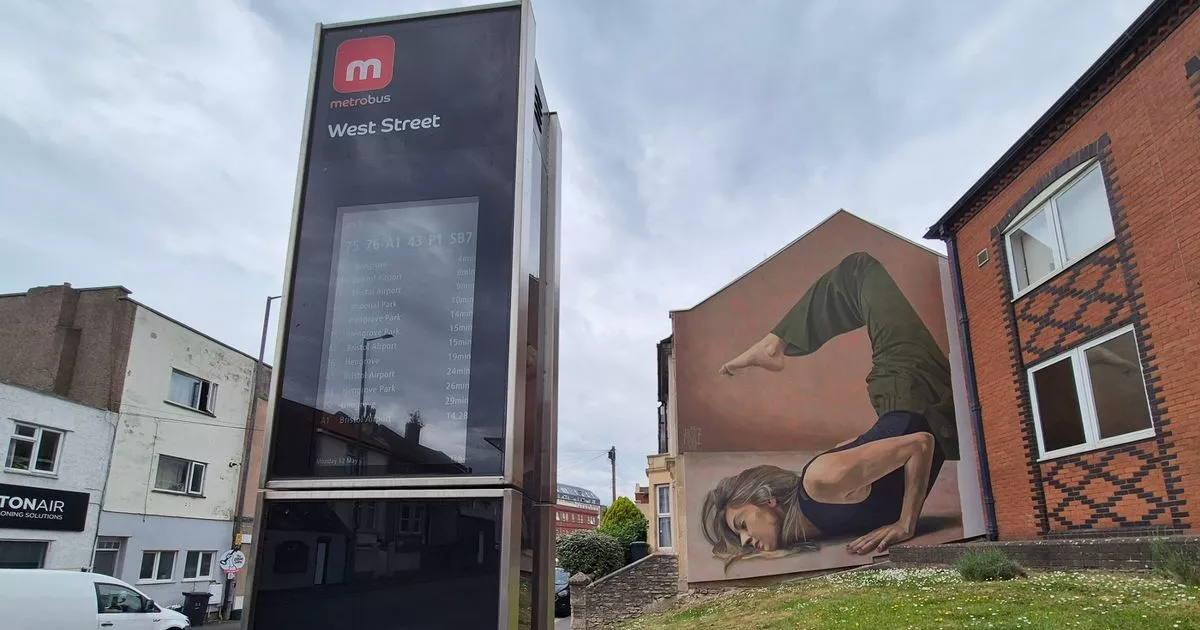An upcoming review will also explore displaying advertising on the Metrobus iPoints A Metrobus iPoint in Bedminster(Image: Alex Seabrook)
A Metrobus iPoint in Bedminster(Image: Alex Seabrook)
Metrobus ticket machines could soon be removed from bus stops as only a few people actually use them.
The large digital screens, known as iPoints, allow passengers to buy a ticket before they board the bus, as well as giving information about when the next buses are due to arrive.
There are 90 iPoints across the Metrobus network in Bristol and South Gloucestershire, and one in North Somerset at the Long Ashton Park and Ride.
An upcoming review will explore whether they are still needed, given how many passengers buy a ticket using the tap-on method or app.
The contract to maintain the iPoints is managed by Bristol City Council, and the current contract ends in October next year.
Councillors on the transport policy committee will hear options for the next steps of the iPoints on Thursday, May 15, which could include taking them away altogether.
A committee report said: “There is an iPoint at every Metrobus stop, providing passengers with ticket-vending facilities, wayfinding information, real-time bus information and other functions.
“Since the inception of the Metrobus network and the iPoints, the way in which passengers access information and purchase tickets has significantly changed.”
When the tickets for the Metrobus services were first designed, a decade ago in 2015, passengers needed to buy tickets without cash and before getting on the bus, in a bid to speed up the process of getting passengers on board and reduce how long buses waited at each stop. Now there are several other options for buying a ticket, including ‘tapping on’ with a card.
Between October 2023 and October last year, only four per cent of tickets for Metrobus services were bought using an iPoint.
A quarter were using the tap-on, tap-off method, and over half were via the First Bus app. Each year local councils have to pay £331,000 to maintain iPoints.
The iPoints also help passengers plan journeys, although over the past decade mobile apps have also proliferated that help people do this. And the majority of bus stops have a separate screen showing real-time information on when the next buses are due to arrive.
The report added: “There are some clear advantages to keeping the iPoints, particularly as they are an iconic presence as part of the flagship public transport service in the region and are a source of information for passengers.
“However, they are also expensive to maintain, and they do not provide any specific functionality that passengers could not access in other ways.
“Partners are already keen to explore the ability for having greater flexibility in respect of the iPoint components. Removing some of the components, particularly some of the more expensive and underutilised components such as the ticketing, could reduce the ongoing maintenance costs.”
Options include keeping all the functions of the iPoints, removing the ability to buy a ticket, removing the real-time information, removing the journey planning screen, removing a help button, and completely removing iPoints.
Findings of the review are expected later this year. Another option would be to use the iPoints to display advertising, which would help raise cash.
